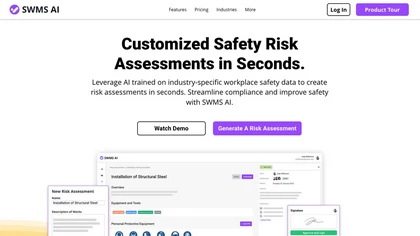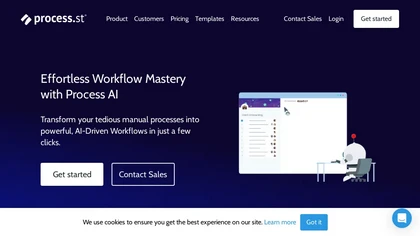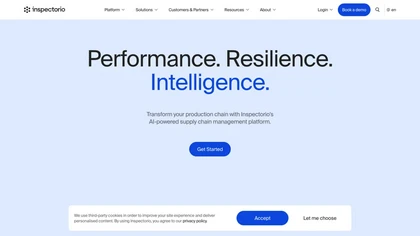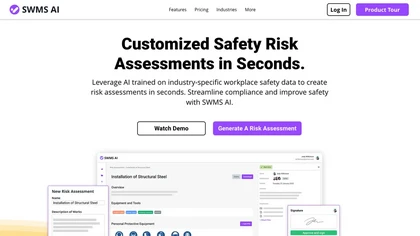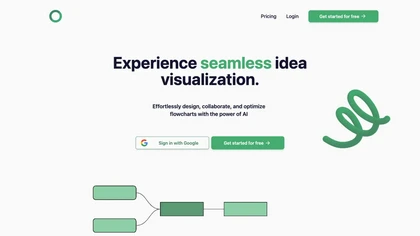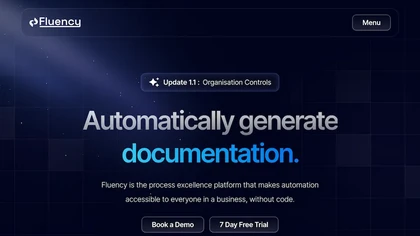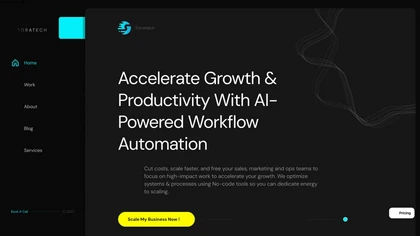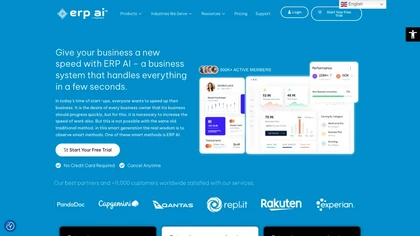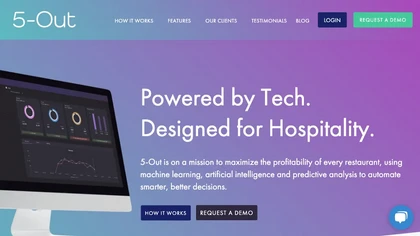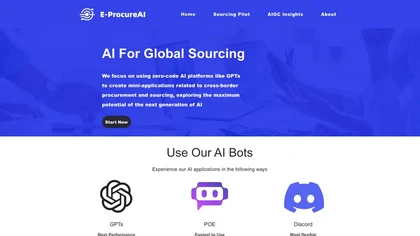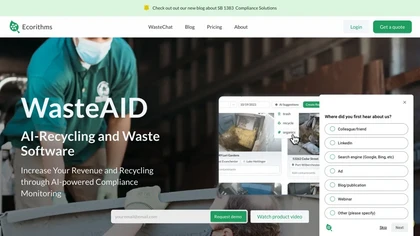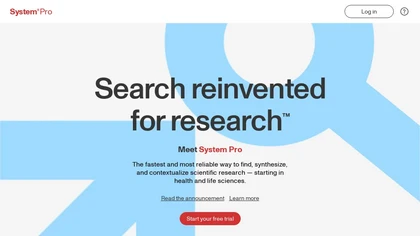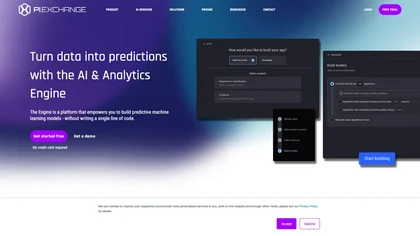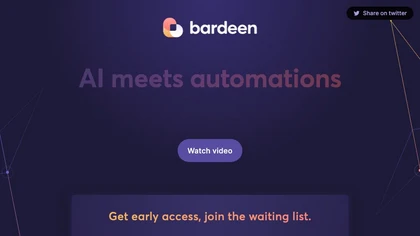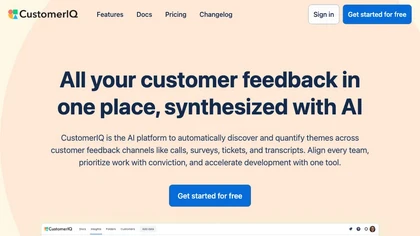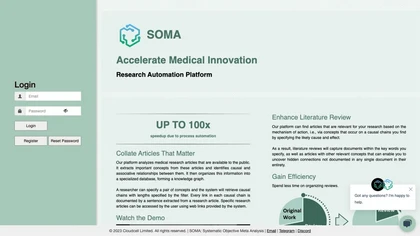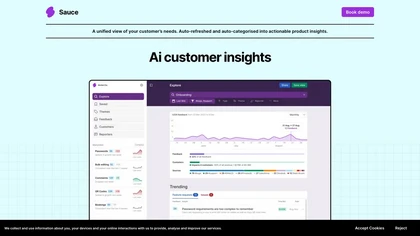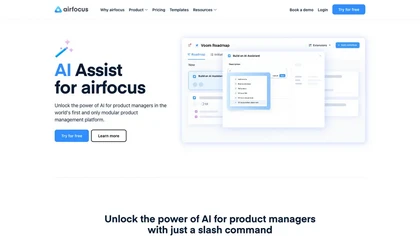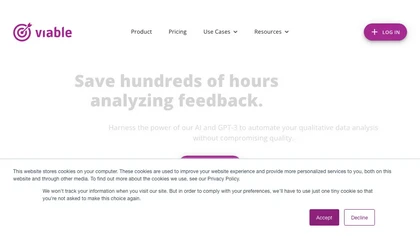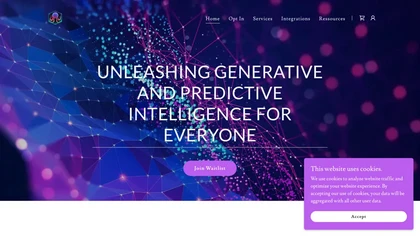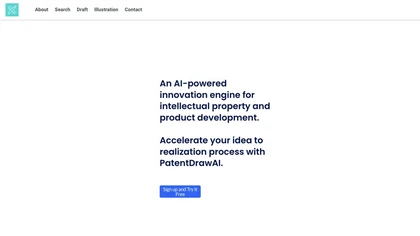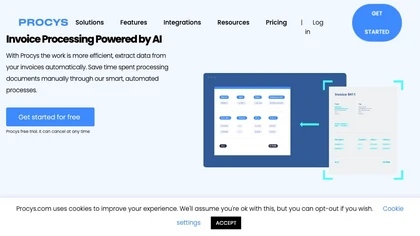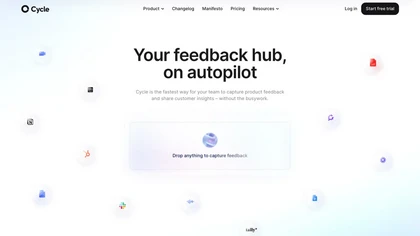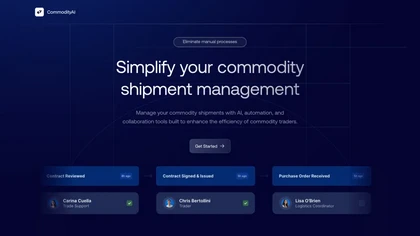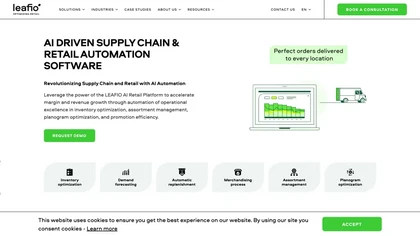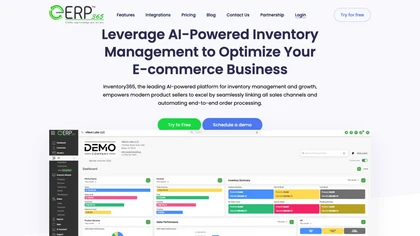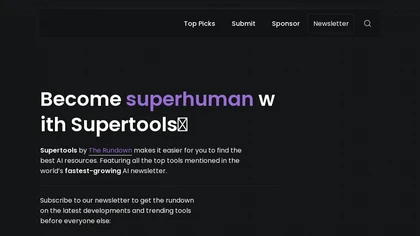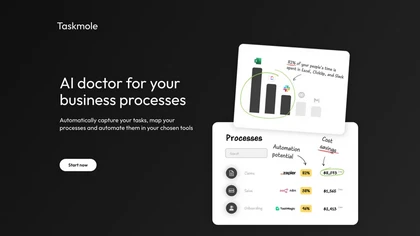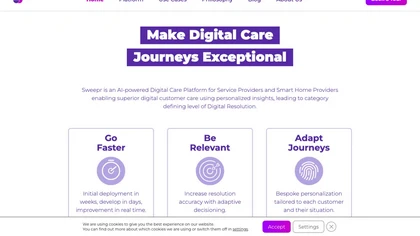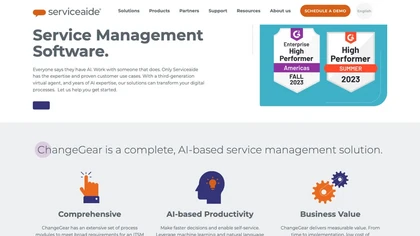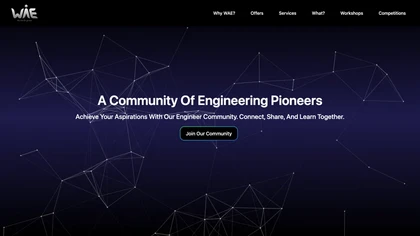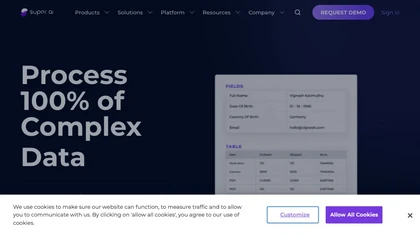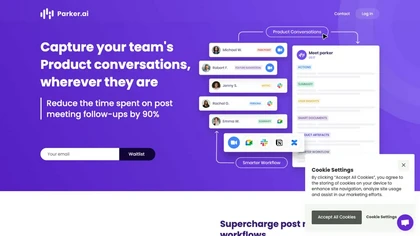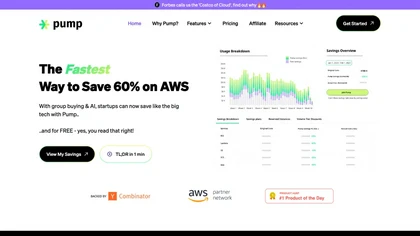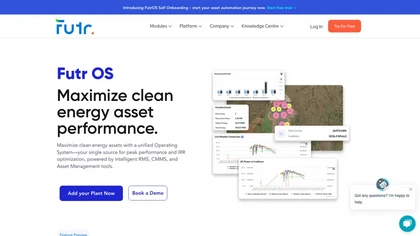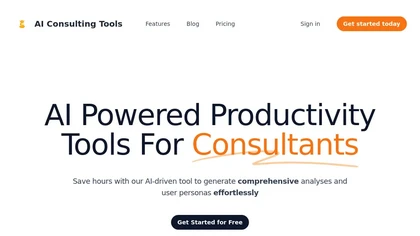AI use cases for Process Engineering
Generative AI can be applied in various applications for process engineering. Here are some examples to explore below for inspiration with AI tools to get you started with using AI in process engineering.
🛠️ 70 AI tools for Process Engineering
Explore a dynamic list of some of the most popular tools to get you started with various AI use cases and applications for Process Engineering to streamline your workflows and productivity today.
SWMS AI features
- Tailored risk assessments generation
- Customizable safety policies
- Personalized document generation
- Integration of AI assistant for safety information
- Streamlining compliance processes
Process features
- AI-powered task generation
- Automated task creation process
- Task generation based on project requirements and deadlines
- Advanced security measures for data privacy
- Workflow simplification
Process AI features
- Workflow generation
- Manage due dates and timelines
- Assign tasks to team members
- Built-in approval processes
- Document analysis
Perceptif features
- Auto-discovery
- Custom experiences
- Process optimization
- Benchmarking solutions
- Competitor analysis
inspectorio.com features
- AI-powered supply chain management platform
- Utilization of innovative technologies like AI
- Digitizes and connects supply chain processes within a single tool
- Enables intelligent analysis of the entire ecosystem
- Reduces production chain risks through advanced analytics
Reform features
- Modular building blocks for customized solutions
- State-of-the-art multimodal AI models for logistics documentation
- Automation of data capture for various documents
- Seamless integration with universal transportation management systems (TMS) through a universal API
- Embeddable customer dashboards for real-time data insights
Typo features
- Measure effort and cost spent on innovation
- Technical debt
- Roadmap
- Identify sdlc metrics that impact development efficiency
- Remove blockers in real-time
🔥
Create your account, save tools & get personal recommendations
Receive a weekly digest of our handpicked top tools.
Unsubscribe anytime
GeniePM features
- Product requirements
- User stories
- Use cases
SWMS features
- AI risk assessments
- Safety Co-Pilot integration
- Customization options
- Quickly generate safe work sequences
- AI-powered safety recommendations
Flowsage Beta features
- AI-powered completions
- Intelligent auto-completions
- Real-time collaboration
- Analyzing and optimizing flowcharts
- AI-driven chat support
Fluency.com features
- Automated Process Documentation
- Process Insights
- AI Assistant
- Automations
- Audit View
Tech Web Planet features
- Advanced quality control solutions
- In-depth insights for enhancing app quality
- AI-driven capabilities
- Streamlining app development lifecycle
- Top-notch product delivery
Soratech features
- AI-powered workflow automation
- No-code tools utilization
- Access to top-tier experts
- Fixed monthly subscription model
- Focus on automation solutions for various business functions
MEJ ERP AI features
- Intelligent automation
- Data-driven insights
- Real-time analytics
- Predictive forecasting
- Seamless integration capabilities
Inventive features
- Streamline rfis, rfqs, security reviews, rfps
- Generate reliable answers with ai
- Reduce reliance on subject matter experts
- Save substantial time and effort
- Up-to-date content
5-Out features
- Predicting sales
- Optimizing labor
- Optimizing purchasing
- Quick setup
- Getting started
E-Procure AI features
- Zero-code AI platform integration
- Recommendation of supply locations and suppliers
- Market expansion assistance
- Product opportunity identification
- Real-time exchange rate inquiries
Soon Pulse features
- Pre-built pulses
- Natural language processing technology
- Kpi monitoring
- Trend analysis
- Mental health check-ins
DrugCard features
- Automates drug safety routines
- Multiple languages and countries
- High-performance screening
WasteAID features
- Automatic route auditing
- Integration with existing systems
- Audit over 400k generators and 1m+ pickups
- Detect overflow incidents and identify contamination
- Tracking commercial account compliance
System Pro features
- Synthesizing relevant scientific data
- Sifting through vast amounts of data
- Offering a faster and more reliable search experience
- Seamlessly exploring a wide range of topics
- Contextualizing research findings
Pi Exchange features
- End-to-end machine-learning tool
- Eliminates the need for coding
- Smart data preparation
- Model development
- Deployment functionalities
Unfig features
- Automated data capture from various logistics documents
- Universal TMS integrations for seamless connectivity
- Embeddable customer dashboards for real-time data insights
- Scraping information from numerous sources for visibility into logistics data
- Streamlining logistics operations with unprecedented speed and efficiency
bardeen features
- Automation
- Manual workflow
- Ai
- Workflow management
- Process automation
Product Manager OS features
- AI-powered system
- Task prioritization
- Development management resources
- Customer discovery tools
- A/B testing frameworks
Servcy features
- Consolidate data from multiple tools into one central location
- Aggregated inbox to view and respond to various communications in one place
- AI support to prioritize and respond to important messages promptly
- AI capabilities for storing and managing documents as well as answering questions
- Features for tracking payments, analyzing time, merging calendars, and providing planning insights
Lotse features
- Information Retrieval
- Seamless Tool Integration
- AI-Powered Reporting & Insights
Forescribe features
- Discover, analyze, and manage integrations of SaaS applications
- Provide real-time insights on SaaS usage and compliance
- Automated compliance checks for SaaS applications
- Offer cost optimization suggestions for SaaS applications
- Enhance transparency in digital landscape governance
Reform features
- Modular building blocks for rapid customization
- Automated data extraction from various documents
- Seamless integration with universal TMS platforms
- Real-time visibility into logistics data
- Efficient data scraping from multiple sources
CustomerIQ features
- Aggregate feedback from various channels
- Powerful analytics for customer feedback
- Chat with data
- Automated segmentation and tagging
- Multiple integrations available
empress.eco features
- AI-powered automation
- On-demand outsourcing solutions
- Software integrations
- Helpdesk services
- Industry-specific solutions
SOMA features
- Automating research process
- Collating and analyzing medical research articles
- Identifying causal and associative relationships
- Creating a knowledge graph for exploration
- API access for building pipelines in Python, R, or other languages
Sauce features
- Auto-refreshing of customer needs
- Auto-categorizing of actionable product insights
- Real-time understanding of customer needs
- Monitoring of problem areas
- Data security with encryption
Smartersales features
- Integration with zoom, teams, and meet
- Automated crm data entry
- Instant personalized feedback
- Detailed performance dashboards and summarized email reports
- Customizable experience
Prodhub.ai features
- Task automation
- Auto-generation of product requirements
- Proprietary data generative AI
- Collaborative product development
- Export to various tools
AI Assist by airfocus features
- AI-generated ideas and drafts
- Sentiment analysis
- Utilize slash commands
- Prompt features for PRDs and user stories creation
- Feedback sentiment analysis
viable features
- Automated qualitative data analysis
- Customer feedback understanding
- Nlp technology
- Feedback analysis
Predict Expert AI features
- Crafting unique AI models
- Integrating intelligent applications and APIs
- Tailoring AI models and applications to address specific business needs
- Real-time operational insights
- Monitoring performance in real-time
Ever Efficient AI features
- Custom dashboard
- Recurring ideation
- Debugging and testing
- System monitoring
- Bi-weekly sprint-based development cycle
Timely Platform features
- Streamlined workflows
- Enhanced productivity
- Easy-to-use interface
- Real-time reporting
- SMS alerts for reducing no-shows
PatentDrawAI features
- AI-powered drafting assistance
- Technical illustration transformations
- Analysis and valuation services
- Insights on patent types and licensing agreements
- Compliance with security standards
Procys features
- Invoice extraction
- Document validation
- Automated data entry
- Digitization of invoices
Cycle 3.0 features
- Fast integrations
- Semantic search
- Auto generation of titles
- Syncing customer data
- Visualizing feedback
CommodityAI features
- Automated shipment processes
- Auto-generated shipping nominations
- Real-time shipment tracking
- AI-driven performance analytics
- Smart data extraction
QA Sphere features
- Digital checklist for managing tests
- Building a library of test cases
- Planning tests efficiently
- Organized test case library
- Integration with issue trackers
LEAFIO AI Retail features
- AI-driven supply chain and retail automation software
- Automation of inventory optimization, assortment management, planogram optimization, and promotion efficiency
- Features such as demand forecasting, automatic replenishment, and merchandising process optimization
- Caters to various industries including retail, grocery, convenience stores, pharmacies, liquor stores, etc.
- Comprehensive suite of AI-powered tools to streamline retail operations and drive profitable growth
Inventory365 features
- Real-Time Inventory Tracking
- Warehouse Management
- Multi-location Fulfillment
- AI-Powered Demand Prediction
- Seamless Integration
Warden features
- Streamlining security workflows
- Automated generation of technical architecture diagrams
- Identification of issues and risks within projects
- Automatic generation of risk factors
- Suggestion of possible mitigations for risks
SuperTools features
- Task management
- News updates
- Trend monitoring
- Ai tool categorization
- Productivity enhancement
Taskmole features
- Task capture and mapping
- Integration with Zapier and N8n
- Task mining for tracking computer activities
- Data encryption for security
- Tailored automation recommendations
Tricuss features
- Knowledge specialization
- Project management
- Automation apps
- Support for large language models
- AI capabilities enhancement
FolioProjects features
- AI project management assistant
- Data-rich dashboards for analysis
- Project portfolio management workflow
- Enterprise asset management life cycle support
- Predictive, prescriptive, and generative AI capabilities
sweepr.com features
- Personalized insights for digital customer care
- Adaptive decision-making
- Bespoke personalization
- Omnichannel support
- Generative AI capabilities
Midaflow features
- Automated invoice processing
- Global payment visibility
- Centralized vendor and order management
- User role settings
- ERP system integration
Serviceaide.com features
- Third-generation virtual agent
- Machine learning
- Natural language processing
- Comprehensive AI-based service management platform
- Modular features powered by AI technology
checklist.gg features
- Checklist management
- Task management
- Workflow management
- Real-time collaboration
- Integration with existing tools
We Are Engineer features
- Education and training focus
- Industry-level partnerships
- Insights from expert engineers
- Support for successful engineering careers
- Workshops, Q&A sessions, and competitions
SuperAI features
- Automation of business processes
- Conversion of unstructured data to ai applications
Contractify features
- Automatic contract tasks and notifications
- Proactive deadline management
- Secure contract repository
- Efficient contract approval flows
- AI capabilities for contract analysis and digitization
Parker ai features
- Capture and structure product conversations with high fidelity
- Extract and refine critical information from interactions
- Transform qualitative user data into quantitative insights
- Centralize knowledge from conversations to reduce information silos
- Streamline collaboration and decision-making across platforms
Dairytech.ai features
- milkround automation
- automatic payment collection
- stock reconciliation
- online order management
- customer communication
Approvabl features
- Approval workflow embedding
- Custom controls and notifications
- User tracking
- Frontend and backend customization
- Creation and editing of approval flows
Pump features
- Automated AWS savings optimization
- AI-powered algorithms for cost-effective AWS strategies
- Maximum security with limited access to user data
- Group buying for collective discounts on AWS
- Invite-based admin control for multiple AWS accounts
FutrOS features
- Unified operating system
- Warranty management
- Digital twin technology
- Automated performance insights
- Real-time alerts
AI consulting tools features
- Generate swot analyses
- Create user personas
- Automate analysis generation
- Offer support through a support team
sprockets.ai features
- Automating manual tasks
- Reducing employee turnover
- Automated engagement campaigns
- Instant notifications for ideal applicants
- Predictive capabilities
Kodus features
- Team performance analysis
- Improvement suggestions for increased productivity
- Automated management tasks
- Weekly reports and metrics
- Automation for enhancing team productivity
Carepatron features
- Billing and coding functionality
- Clinical notes documentation feature
- Health records management capability
- Online payments integration
- Telehealth services support
PromptLayer features
- Visual management templates
- Api usage monitoring
- Easy tracking of usage history
- Data saving in built-in database
